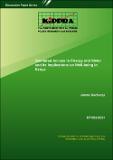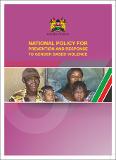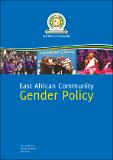Discussion Paper No. 262 of 2021 on Gendered Access to Energy and Water and its Implications on Well-being in Kenya
| dc.date.accessioned | 2022-10-04T12:18:20Z | |
| dc.date.available | 2022-10-04T12:18:20Z | |
| dc.date.issued | 2021 | |
| dc.identifier.uri | https://repository.kippra.or.ke/handle/123456789/3859 | |
| dc.description.abstract | Gendered access to water and energy is an important factor in determining outcomes and opportunities in households. This paper sought to measure gender differences in access to water and energy and examine how this affects wellbeing of women and men. To measure well-being, a multi-dimensional poverty index was computed with dimensions covering: standard of living, economic engagement, education and health. A logistic regression methodology was followed to predict the well-being of an individual based on gendered access to water and energy. Two separate models were tested for men and women. The results show that women’s well-being is disproportionately adversely affected by lack of access to water than men. Regarding access to energy, the time spent getting energy from a source was found to be non-significant in influencing the probability of being multi-dimensionally poor. To safeguard well-being, it is recommended to prioritize investment in interventions that will reduce the time spent by women in accessing water. There is need for gender targeting in interventions, programmes and projects geared towards enhancing access to water and energy. | en |
| dc.language.iso | en | en |
| dc.publisher | The Kenya Institute for Public Policy Research and Analysis (KIPPRA) | en |
| dc.relation.ispartofseries | DP/262/2021 | |
| dc.subject | Gendered Access | en |
| dc.subject | Water and Sanitation | en |
| dc.subject | Energy | en |
| dc.subject | Gender Disparities | en |
| dc.subject | Poverty Index | en |
| dc.title | Discussion Paper No. 262 of 2021 on Gendered Access to Energy and Water and its Implications on Well-being in Kenya | en |
| dc.type | KIPPRA Publications | |
| ppr.contributor.author | Gachanja, James |
Files in this item
This item appears in the following Collection(s)
-
Discussion Papers [326]




